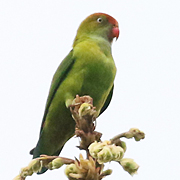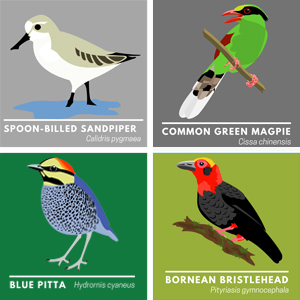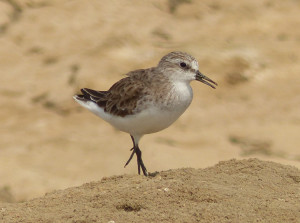
Yesterday, for a second day, I found myself with time alone to visit Laem Pak Bia and Pak Thale. Shorebird numbers were very low compared to a few weeks ago so it appears that most birds have already left for their breeding grounds. I still managed to see 1 Spoon-billed Sandpiper at Pak Thale even though I was not really looking for it. There were no birds near enough to photograph at Pak Thale so I moved on to Laem Pak Bia salt pans where I saw 10 Nordmann’s Greenshank – far away! However, after a fair bir of driving around I did find some birds close enough to take photographs of – here are some of the best.The first birds I photographed were a couple of Spot-billed Pelicans. They were not really that close but being such big birds I could get close enough. This photo shows one of the Pelicans taking oil from its preen gland.
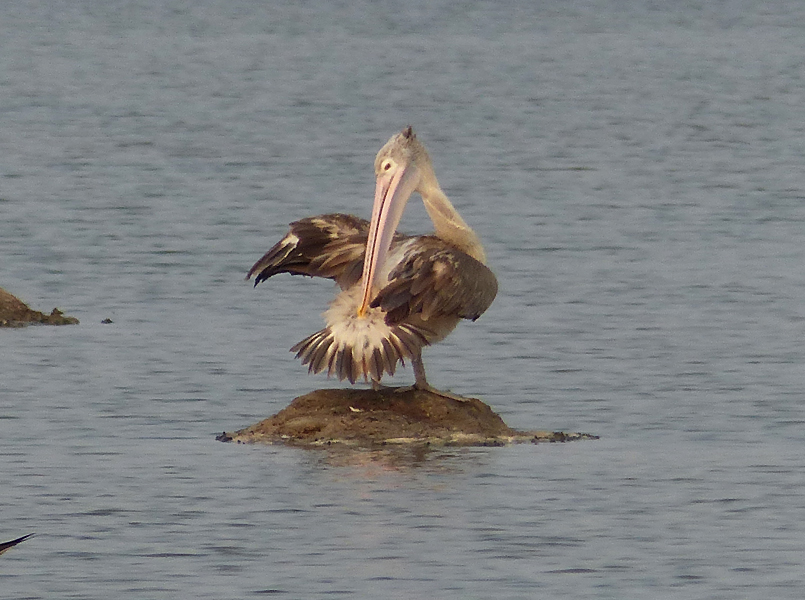 Spot-billed Pelican by Nick Upton
Spot-billed Pelican by Nick Upton
Not too far away were a group of Grey Plovers in a variety of plumages. I had to creep along an overgrown bank to get anywhere near them and by keeping low I did not scare them away.
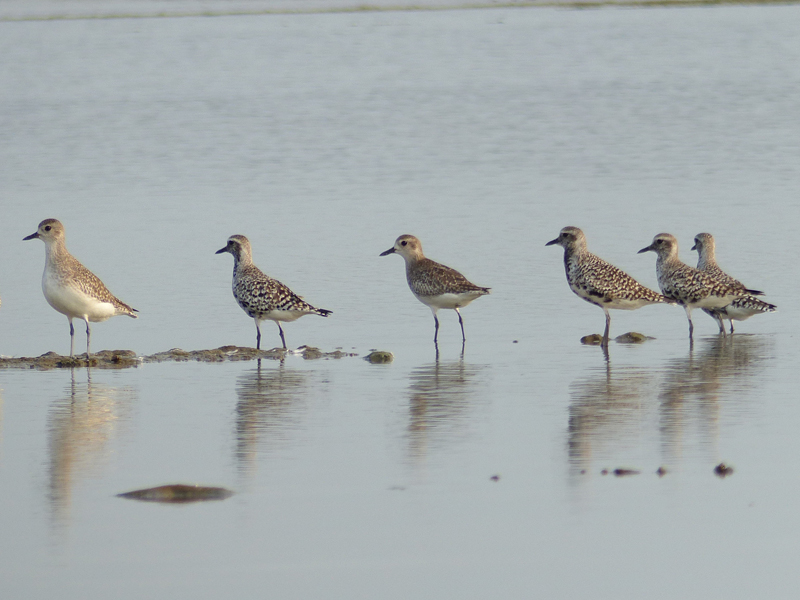 Grey Plovers by Nick Upton
Grey Plovers by Nick Upton
Of course there are always Black-winged Stils around although I don’t find that getting a good photo of them is easy. Their combination of black and white often confounds my photography skills and their ungainly structure means that they often end up in ugly poses in photographs. This one turned out quite well though.
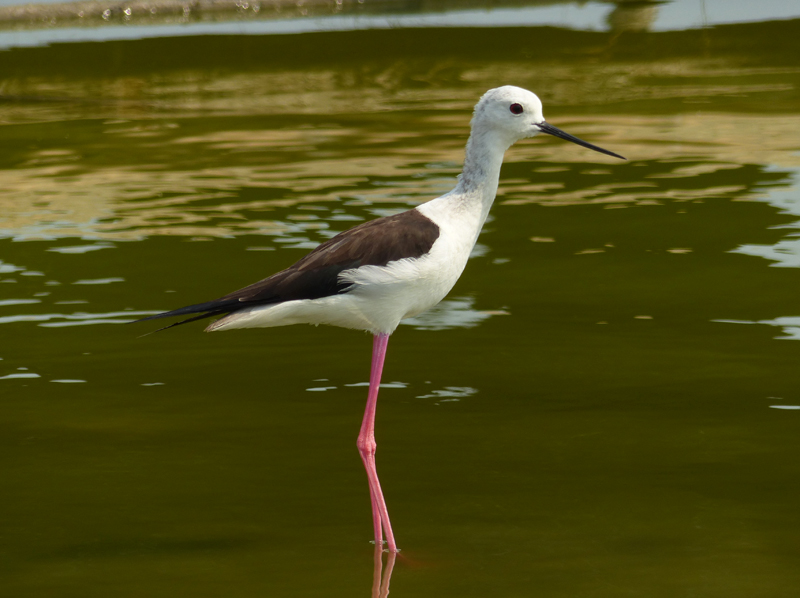 Black-winged Stilt by Nick Upton
Black-winged Stilt by Nick Upton
After a bit of searching I found some Stints in a ditch. There are three species of Stint commonly found here – Long-toed, Red-necked and Temminck’s – and there were all three in this ditch.
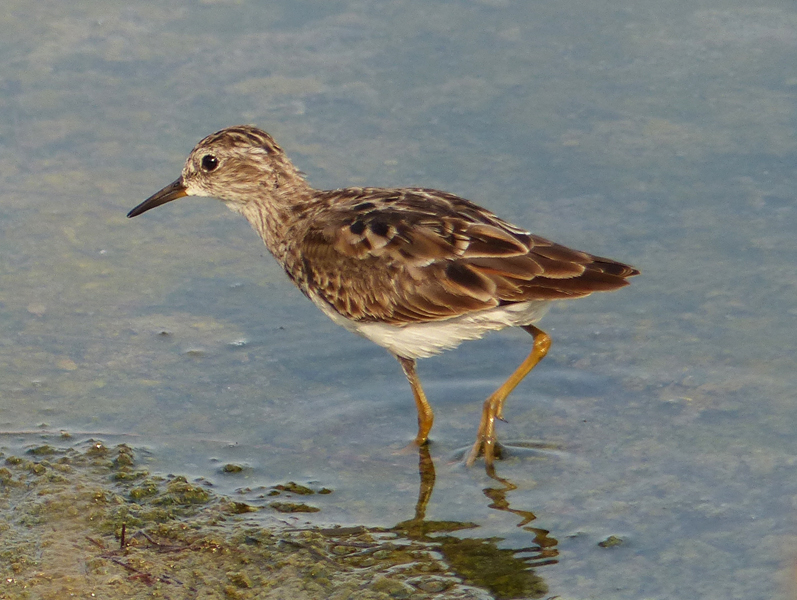 Long-toed Stint by Nick Upton
Long-toed Stint by Nick Upton
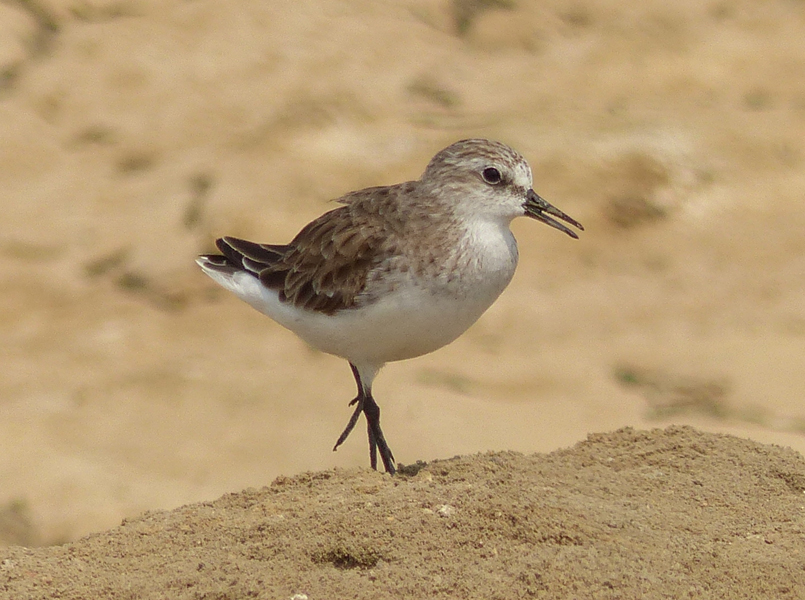 Red-necked Stint (non-breeding plumage) by Nick Upton
Red-necked Stint (non-breeding plumage) by Nick Upton
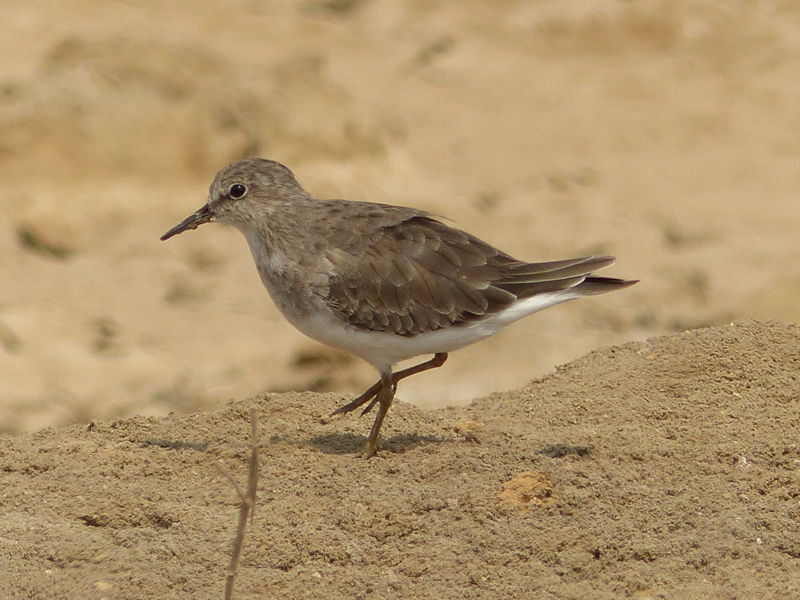 Temminck’s Stint by Nick Upton
Temminck’s Stint by Nick Upton
These were very nice but I was hoping to find some Red-necked Stints in breeding plumage. I located some in a pool that I could drive alongside but unfortunately the light was really difficult although I managed a few reasonable shots.
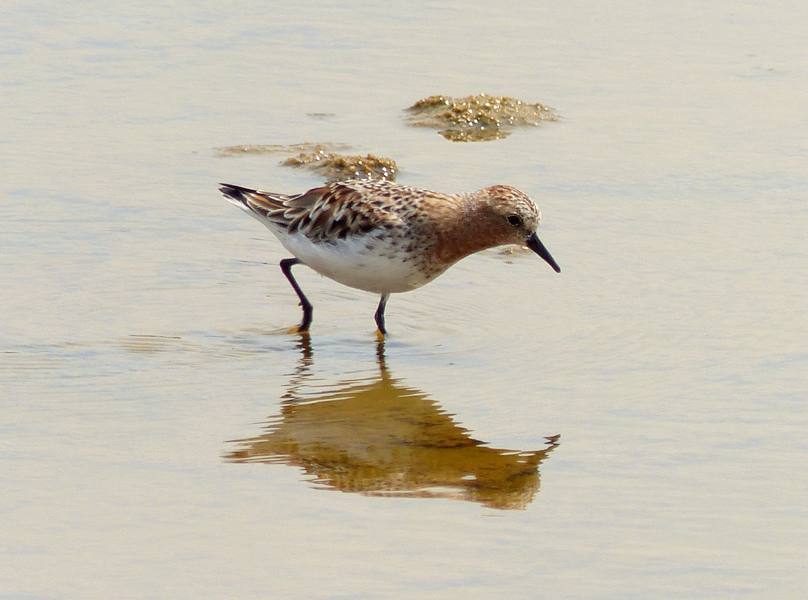 Red-necked Stint (breeding plumage) by Nick Upton
Red-necked Stint (breeding plumage) by Nick Upton
As I was watching these Stints a worker scared some birds from a nearby pool which then landed fairly close to me. These turned out to be Curlew Sandpipers in partial breeding plumage but most of them ran to the far side of the pool leaving just this one in backlit conditions – tough to get a good photo.
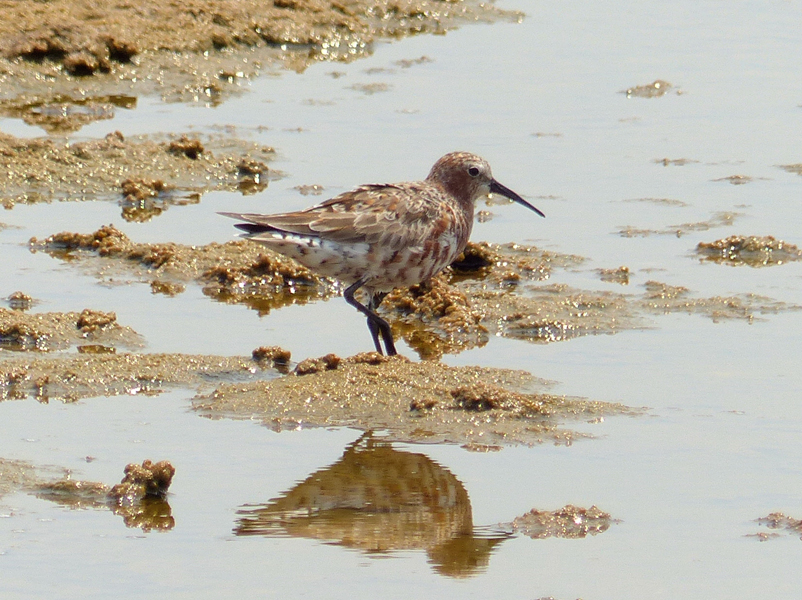 Curlew Sandpiper by Nick Upton
Curlew Sandpiper by Nick Upton
Kentish Plovers seem to be one of the first shorebird species that come into breeding plumage so there were no shortage of candidates, just that most of them were too far away until this obliging individual.
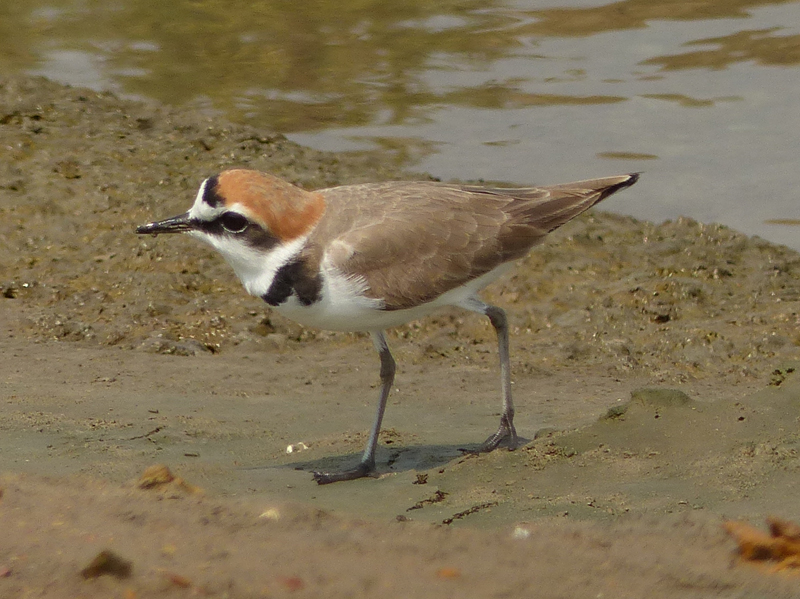 Kentish Plover by Nick Upton
Kentish Plover by Nick Upton
Although there were fairly low numbers of shorebirds present by the normally high standards of this location, I saw quite a few species that I was not able to photograph or have not already mentioned, including Whimbrel, Great Knot, Eurasian Curlew, Pacific Golden Plover, Common Sandpiper, Marsh Sandpiper, Wood Sandpiper, Common Greenshank, Common Redshank, Greater Sand Plover, Lesser Sand Plover, Spotted Redshank, Bar-tailed Godwit, Ruff and a couple of groups of Black-tailed Godwits.
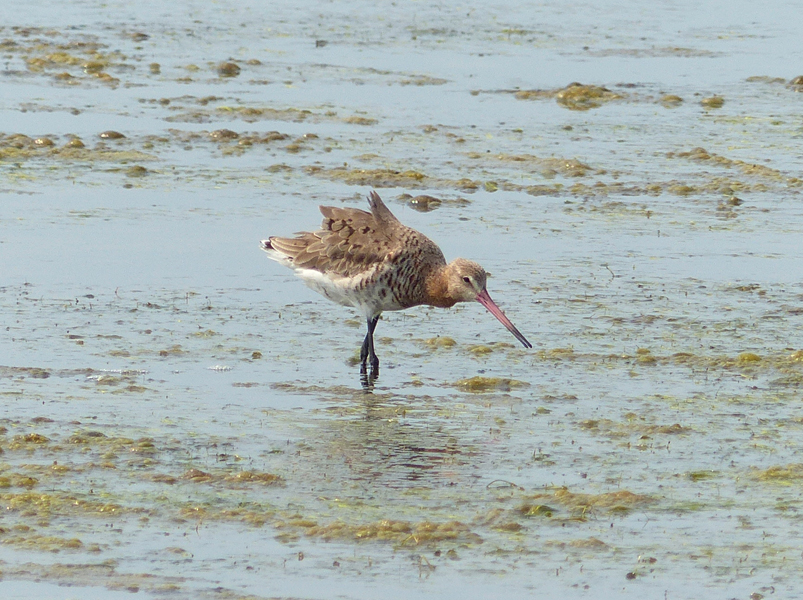 Black-tailed Godwit by Nick Upton
Black-tailed Godwit by Nick Upton
Right now is a good time to see and photograph some of the shorebirds in breeding plumage, or at least partial breeding plumage, but birds are on the move a little early this year and there probably will not be many birds remaining at these sites in a week or two.


 March 28th, 2016
March 28th, 2016  Nick
Nick  Posted in
Posted in  Tags:
Tags: 

